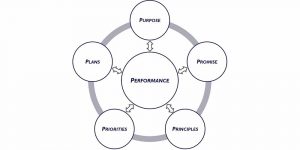COVID-19: How the pandemic challenges decision making wisdom
COVID-19, 5G networks and decisions
Decision making is literally working overtime! And the context in which this is happening is one which is not well understood. This is, after all, a novel coronavirus.
There have been many assertions made about COVID-19 as the novel coronavirus has swept across the globe in a little over 6 months. The nature of the crisis has meant that a vast proportion of the world’s population is having to make decisions about matters that previously wouldn’t have been given a second thought. Note, this is not just those who get paid to make many decisions. Neither is it restricted to the adult population, who might otherwise assume more of this responsibility. Now decision making is key to minimising the risks of becoming infected with the virus, or passing it along, and it involves everyone.
It’s completely understandable that many people fear the virus, or at least did so in its early emergence. Professor Alicia Juarreo, a specialist in complexity theory with deep knowledge in biology and neuroethics, recently underscored the often overlooked role of emotions in decision making. Every single decision made, most of which are processed unconsciously, is influenced by emotions. So much for the myth that the best decisions are completely rational, based only on the facts.
Perhaps that’s one of the contributing factors that gave impetus to the conspiracy theory around 5G telecommunications and the coronavirus? Fear, the most powerful and primal of emotions, certainly played a major role. As implausible as it may seem, quite large groups of people connected bits of unrelated information and came to believe that the COVID-19 virus was able to hijack 5G telecoms signals and use them to spread itself. In fact, they were so energised by this that dozens of 5G towers were destroyed by angry mobs who bought into the conspiracy.
While the 5G conspiracy fears don’t contribute anything, perhaps making people more generally aware of the role emotions in decision making may support myth-busting and better decision making. But that must translate to action. What can people do to take better account of these perspectives on decision making?
The medical model of decision making caught short
Interestingly, decision making challenges haven’t been confined to conspiracy theorists. The medical model of decision making, the tried and true approach called on at the start of the outbreak, has itself been a casualty of COVID-19. Humans, individually and as a species, do not yet have suitable immune responses. As well, while there is much medical knowledge about disease, and even specifically about viruses and other coronaviruses, this one is novel!
Research psychologist Professor Gary Klein, famous for pioneering the field of naturalistic decision making, points out that the medical ‘gold standard’ of double-blind testing has proven deficient in the COVID-19 context. It’s not that such an approach doesn’t have any merits. Rather, in a crisis context where rapid decision making is necessary because of emergent factors, it’s simply too slow. Many double-blind studies often take months, if not years to complete. While this ensures medicines, vaccines and the like are safer for the population in general, the COVID threat poses a greater risk in real-time.
While the medical model will still prove valuable when things stabilise, right now, it cannot be the only decision making approach healthcare and politicians rely on to make decisions. In fact, to make better decisions in complex contexts, including beyond the pandemic, there needs to be a more rapid succession of decisions being made. These are linked to rapid actions that follow, in an experimental sense. Test safe-to-fail actions quickly, discarding those that don’t look promising and ramping up those that do. The emphasis is on learning quickly and taking advantage of the emergent insights.
The focus of problem solving likely needs changing
Dr Joao Da Silva, medical doctor turned change specialist, believes that decision making in complex contexts would also benefit from a shift from ‘looking for solutions’ to ‘seeking resolution’ instead. Rather than seeing an outcome as ‘the answer’, it’s an approach that might work right here, right now, until the context changes.
Complex contexts, by their very nature, change a lot! Since much decision making takes place in organisations, let’s consider that example. It may be helpful to think of organisations less as machines and more like places that experience weather. Assuming first that organisations are like machines (for example the engine of a car), implies that there are moving parts that repeatedly perform in fixed ways. The troubleshooting manual offers predictable fixes (‘the solution’) for anticipated problems.
But complex contexts are much more dynamic and changeable, a bit like the weather at a location. People will vary their responses according to the current weather or forecast. Airconditioning might be a response on a day, but on another, the context might require an umbrella. On yet another, it might demand a warm coat. Decision making focuses on seeking a ‘resolution’ in context, rather than finding ‘the solution’.
PRACTICAL IDEAS TO APPLY IN YOUR BUSINESS
Making better decisions in a crisis
- Recognise the role of emotions in decision making by taking intentional actions to account for its impact. For example, try and ensure parties in a decision making context are as calm as possible, to prevent fear from casting an unwanted shadow, both consciously and unconsciously, over decision outcomes.
- Categorise the problem you’re trying to solve. Is the context quite straight forward, in which case a linear problem solving approach will likely work? If your problem is complex, you’ll need to adopt a less linear approach – even the gold standard medical model is found wanting in this type of context. You’ll need much more of an rapid experimental approach, where you iterate quickly through small, survivable experiments to keep adjusting to what seems to be the best action in the current context. Remember, if it’s complex it will change, sooner rather than later!
- Adopt a ‘resolution’ rather than a ‘solution’ mindset to decision making in complex contexts. Just as you’d respond in a flexible way to the weather on a day to day or even hour to hour basis, see your context as changeable. In this way you’ll be change agile and responsive and not trapped by trying to find the silver bullet, final solution (which just doesn’t exist in these contexts).



